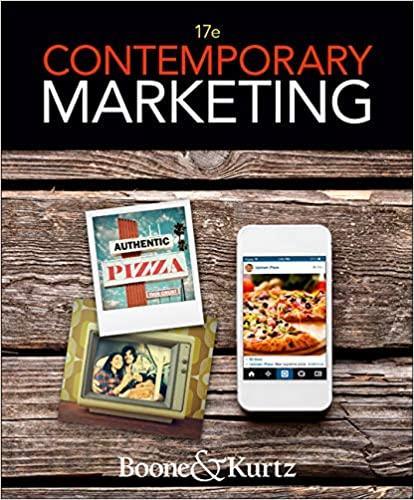Dedicated to the mission of nourishing lives, the company produces millions of servings of food every day,
Question:
Dedicated to the mission of “nourishing lives,” the company produces millions of servings of food every day, from iconic breakfast cereals such as Cheerios to Yoplait dairy products, and from Green Giant vegetables to Häagen-Dazs ice cream. Along the way, General Mills has also donated hundreds of millions of dollars to not-for-profit organizations since the 1950s, including more than $40 million for worldwide hunger relief in a recent year. Its Global Responsibility Report outlines a long list of corporate social responsibility goals and achievements.
The report showcases General Mills’ commitment to improving health, protecting the environment, and continuing to engage with employees and customers in the workplace and the community. The company’s new “sustainable sourcing commitment,” for instance, aims to conserve and protect natural resources by promoting environmentally responsible purchasing along the entire length of its supply chain, including its use of raw agricultural inputs and its production processes, packaging, and distribution. General Mills has adopted a goal to source 100 percent of its inputs from responsible and sustainable sources in the near future. It now reports significant progress on ten of its top-priority agricultural commodities, representing more than 50 percent of its annual purchases and including large quantities of certified sustainable palm oil.
The company has also undertaken improvements in the quality of its top products, including adding more healthful ingredients such as whole grains and calcium while reducing less desirable ones such as calories, sugar, sodium, and trans fat. General Mills recently announced that original Cheerios is now made from corn and sugar that have not been genetically modified. The company has also set goals for reducing its production of solid waste, reducing its use of transportation fuel, and reducing its greenhouse gas emission and use of water. It has even reached many of its social responsibility goals early. For instance, it is ahead of schedule on improving its packaging.
Questions
1. Do you think General Mills’ rapid progress toward some of its goals means it has set appropriate benchmarks for social responsibility achievement? Or should it set higher ones?
2. How can the company further improve the nutritional quality of some of its sugared cereals such as Lucky Charms and Cocoa Puffs, which one critic likened to “junk food,” without risking profit or market share?
Step by Step Answer:






